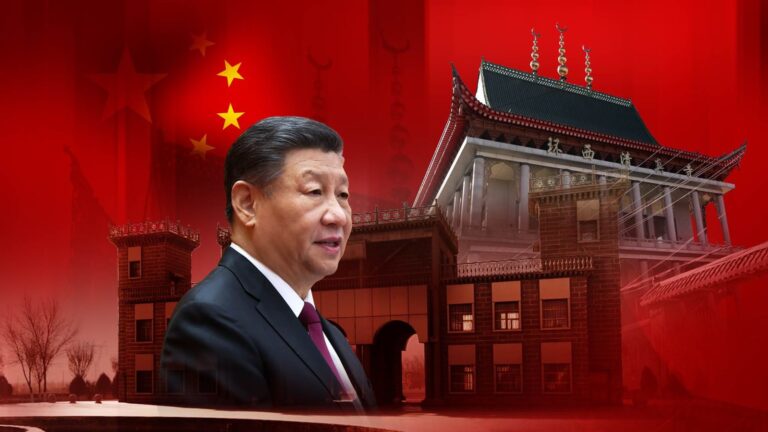“They really want to get rid of religion.”
The “sinicization of religion” was first coined by President Xi Jinping in 2015, shortly after he declared a “Strike Hard” campaign against violent terrorism. The policy was announced following a series of attacks by Uighurs that ultimately led to a crackdown in Xinjiang.
Leaked internal Chinese government documents known as the Xinjiang Papers, written in 2018, include “Document No. 10,” which outlines plans to control Islam across China by “actively guiding Islam to adapt to a socialist society.”
Chinese President Xi Jinping
Chinese President Xi Jinping
Achieving this includes a clear plan to reduce the number of mosques and outlines the “principle of demolishing more and building less,” the document says.
It also stipulates that the Arabic language should be banned and that party members must be atheists.
Another document, prepared by the state-run Islamic Association of China, is called the “Five-Year Plan for the Sinicization of Islam.”
The document speaks of the need to enforce the use of “sermons in the common language of the nation,” the need to “adhere to the separation of religion and education,” and the need for mosques to be equipped with visual reminders of the national importance, “the national flag, the Constitution, laws, regulations, core socialist values, and China’s outstanding virtues.”
Chinese officials have also described the leaked Xinjiang documents as “fabricated” and an attempt to “denigrate China’s counter-terrorism and anti-extremism efforts.”
“You can’t compete with the Communist Party.”
“From a communist, Marxist perspective, they really want to eliminate religion. If you don’t eliminate religion and faith, you can’t have loyal subjects,” said Ma Haiyun, an associate professor at Frostburg State University and a member of the Hui ethnic group who has now become a U.S. citizen.
“You can’t compete with the Chinese Communist Party for social and cultural influence.”
Haiyun Ma is an associate professor at Frostburg State University.
Haiyun Ma is an associate professor at Frostburg State University.
The Chinese Embassy in London told us: “China, like other countries, follows a policy of protecting freedom of religious belief and manages religious matters in accordance with the law. We resolutely reject and combat religious extremism. The normal religious activities of believers are guaranteed in accordance with the law and their practices are respected.”
“Currently, there are more than 35,000 mosques in China, with over 20 million Muslims freely practicing their religion in accordance with the law.”
Regarding the issue of mosque architectural changes, the Chinese Embassy in London said that mosques in some areas “were built in the 1980s, 1990s or even earlier” and “are so dilapidated that religious activities are impossible in windy and rainy weather,” and that local governments have responded to requests from Muslim communities by “making mosques safer, better located and cleaner.”

